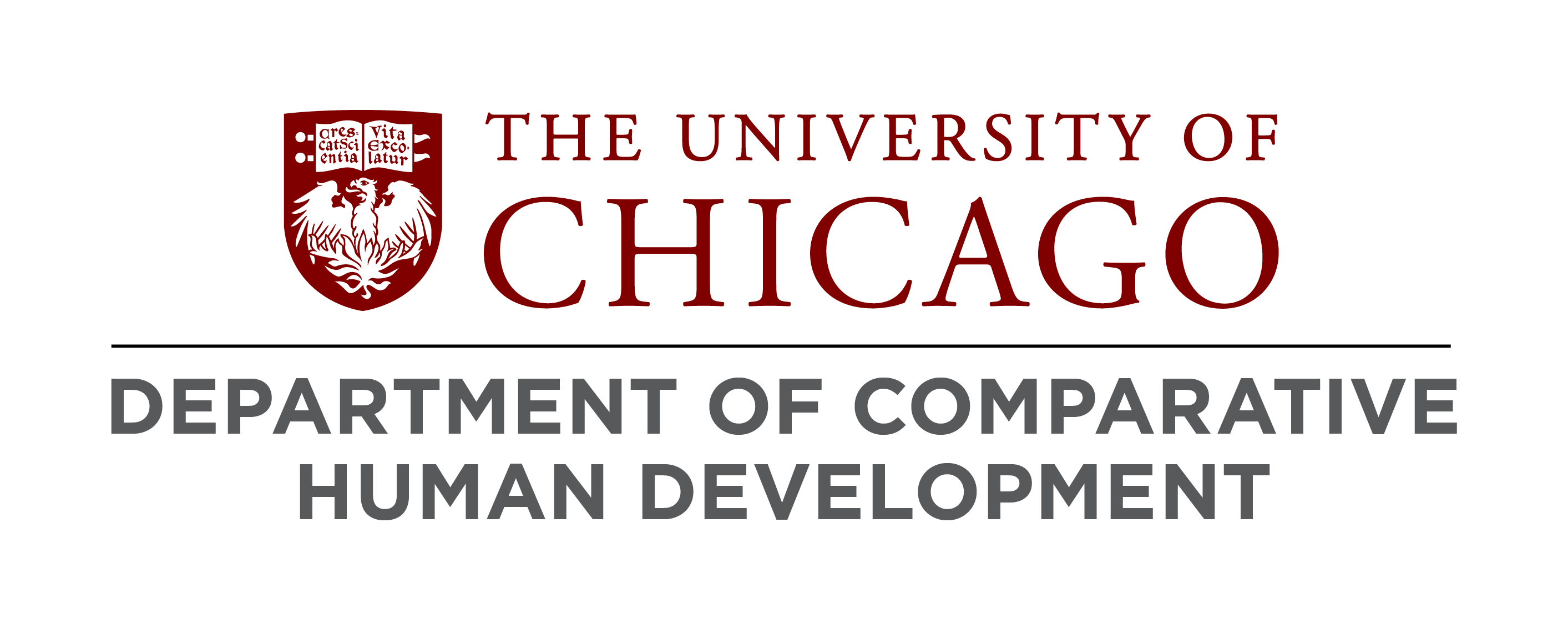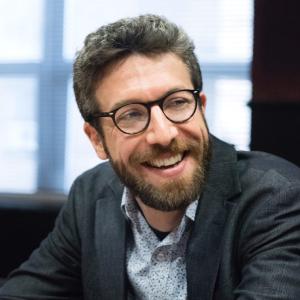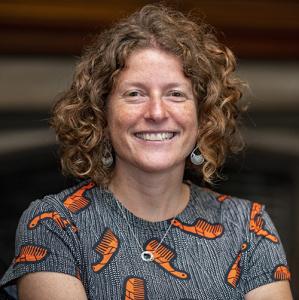Two SSD researchers receive NEH grants for their studies of disability technoculture, global capitalism
By Sarah Steimer
Research from two SSD faculty — one focused on cochlear implants within disability technoculture and the other examining the effects of the Suez Canal on global capitalism — have wide-ranging and important impacts. Recently announced grants will now help the scholars involved in these projects to enhance their work and push their respective fields further into the future.
The two researchers — Aaron Jakes, an Assistant Professor of Modern Middle Eastern History, and Michele Friedner, an Associate Professor in the Department of Comparative Human Development — received grants from the National Endowment for the Humanities, allowing them to deepen their work and reach broader audiences.
The $60,000 outright award for Jakes’s project, titled “Tilted Waters: The World the Suez Canal Made,” will go toward his book on the Suez Canal. The text will be the first study of this length of the Suez Canal to be written in English in half a century, with a focus on the waterway from the 1800s to the present and its influence on patterns of modern global trade. Jakes’s book reframes the history of the canal beyond the basic movement of goods and around its role in the history of global capitalism.
“Typically, people think about the canal as a kind of manufactured shortcut that makes it faster for ships to move around the world, and that isn’t wrong,” Jakes says. “But it has led to a very narrow and relatively impoverished understanding of what the canal is and the various roles that it has played and continues to play in the making of the world that we inhabit.”
For example, he says, because the canal was so narrow and the winds in the isthmus of Suez were too powerful and unpredictable, large sailing ships would struggle to navigate it. Upon its opening in the autumn of 1869, the advantage of this shortcut went almost exclusively to steamships. Thus, the opening of the canal became a major forcing event in the adoption of coal-powered steam technologies in global commercial shipping.
“The central idea of my book is to use the history of the canal to narrate the evolution and transformations of global capitalism, and the relationship between capitalist enterprise and imperialism over this long period of time,” Jakes says. “One of the major foci of the book is on a series of ways in which the canal became a kind of apparatus through which forms of politically organized claims to the wealth of societies — mostly lying outside of Europe and the United States — allowed for the transmutation of that wealth into corporate profits of one kind or another.”
Because the project draws on archival research across four continents, the funding will help with Jakes’s travel, research assistants, and otherwise allow him the time for research and writing. The plan is to publish Tilted Waters with a trade press both to reach broad readerships while also engaging with academic audiences. Jakes says before he even arrived at UChicago, he was approached by June Hou, Senior Associate Director of Research Development, about how the university could support his research, and this was one of the grants she thought might be suitable. “I really am incredibly grateful to June for the help that she offered,” he says.
Friedner’s research, which was awarded a $149,815 outright grant from NEH, is titled “The Global Cochlear Implant: Provincializing ‘Brain Implants’ through Disability Technocultures.” The project is a humanistic comparative study of cochlear implant technology as an early form of a neural-computer interface.
This project expands on Friedner’s previous research on technological solutions for deafness, which became the 2023 Rachel Carson prize-winning book, Sensory Futures: Deafness and Cochlear Implant Infrastructures in India. The next phase of Friedner’s study will include research that will run from 2023-2025 and result in an edited volume about sensory inequalities and implant use in different national and cultural contexts. This study is in collaboration with co-project director Mara Mills, Associate Professor of Media, Culture, and Communication at New York University.
Friedner’s look into government-funded cochlear implant programs in India led her to find that shortcomings in both early intervention and education for deaf children and a focus on technologies can lead to a narrowing in terms of communication and sensing — the opposite effect that the implants are intended to have.
“When deaf children are implanted, their families are told that they need to become auditory people — ironically, more auditorily dependent than non-deaf, non-disabled people,” Friedner says. “They're told that they're not allowed to sign, they're not allowed to gesture, that they're not allowed to use any of these other skills and repertoires that many of us — deaf and non-deaf — take for granted.”
Friedner’s work has highlighted the complex dependencies that children and their families enter into with the device manufacturers, because the government provides the devices initially and with two years of device support. But the devices break, the batteries die, parts need to be replaced, and families are eventually on their own to cover the costs.
“It's really important to me to look at these global resonances and to think about how we might be able to build a platform from which to make demands, and I think those demands do need to be made in relation to both states and corporations,” she says. The NEH grant funds a international conference on cochlear implantation and an interdisciplinary edited volume that will examine histories and experiences of cochlear implantation as well as mobilize cochlear implantation as a launching point to consider the dangers and opportunities offered by and through biotechnology, an important issue right now as talk about different kinds of implants become ubiquitous.
 THE UNIVERSITY OF CHICAGO
THE UNIVERSITY OF CHICAGO



